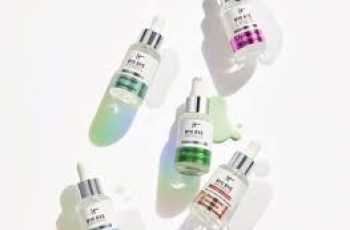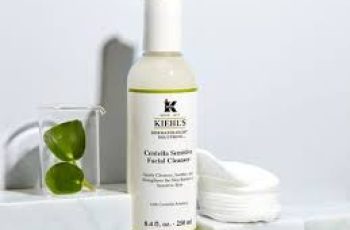
Skin Inflammation
Inflammation of the skin is called many names such as sensitive skin, dermatitis, rash, inflamed skin ,mottled skin, blotchy skin and skin allergy. All of these have one main thing in common: erythema (pink or red skin).
Inflammation is the cause of red skin, but what is inflammation?
Skin inflammation can be caused by these diagnoses: rosacea, acne, photosensitivity, seborrheic dermatitis, eczema, psoriasis, acne, and contact or irritant dermatitis.
Inflammation should be treated as soon as possible with skin care products containing soothing anti-inflammatory ingredients like Argan Oil because inflammation has a domino effect causing more inflammation. Inflammation is harmful to your overall health leading to systemic problems like diabetes and heart disease. In the skin, inflammation causes damage to skin cells, hyperpigmentation, and skin aging. Inflammation is such an important cause of skin aging that the term “inflammaging” is often used to describe the process and anti-inflammatory ingredients are also considered antiaging ingredients.
This blog will explain what causes inflammation of the skin and how to prevent and treat it using a soothing skincare routine.
Why is my Face so Red?
If your face is red, this means your superficial capillaries ( blood vessels) have dilated which brings more red oxygenated blood to the surface which gives skin the erythema or pink- red blotchy color associated with sensitive skin and inflammatory skin conditions. There are many things cell signals that cause inflammation such as histamine that are discussed in this blog on the science of inflammation.
Eight of the 16 Baumann Skin Types are susceptible to skin inflammation. If you are reading this article, you are likely one of these 8 Sensitive Baumann Skin Types.
Take the Quiz
Causes of Skin Inflammation
Inflammation is a vascular and cellular reflexive response of the living tissue to injury. The inflammation response is a series of cascades turned on by of infection, chemical damage (e.g., toxins, irritants), physical damage (e.g., heat, cold, radiation, mechanical trauma), or activation of the immune system (such as antibody recognition of antigens).
Inflammation is a protective mechanism intended to remove injurious stimuli as well as to initiate the healing process of the damaged tissue. However, once inflammation gets turned on- it causes a domino effect that can be hard to stop. This is why once you can an inflammatory reaction, such as a rash, all of the sudden you start having allergies, itching and problem sin other unrelated areas of the body.
How To Cure Skin Inflammation
Many different pathways are involved in cell inflammation. The only way to calm skin and reduce inflammation is to:
Remove the cause of inflammation
Turn off the pathways in the body that are making the skin inflamed
Anti-inflammatory skincare ingredients target get inflammation.
You can learn more of the in-depth science of skin inflammation and which pathways need to be turned off here. For the best in-depth scientific descriptions of skin inflammation see Ch. 38 in Baumann’s Cosmetic Dermatology (McGraw Hill 2022).
Skin Inflammation Symptoms
4 Signs of Inflammation
The 4 signs of skin inflammation are: calor (heat), dolor (pain), rubor (redness), and tumor (swelling).
These signs of skin inflammation are caused by:
dilation of blood vessels that leads to warmth and redness
increased permeability of blood vessels that leads to swelling and hives
extravasation of plasma proteins causes an exudate that increases inflammation
migration of immune cells into the affected tissue
Symptoms
The symptoms of inflammation depend upon the cause but may include:
Blisters
Blotchy skin
Bumpy skin
Burning sensation
Dryness
Flaking or scaling
Increased fine lines and wrinkles
Itching
Mottled skin
Pain
Pink or red skin
Sensation of heat
Swelling
How to Reduce Skin Inflammation and Redness?
As a dermatologist, every day I prescribe skin inflammation medicine. Topical corticosteroids are the most commonly used prescription medications to treat inflamed skin. However, with long term use these steroids can thin the skin and cause immunosuppression. For this reason, dermatologists often use anti-inflammatory creams for skin with natural anti-inflammatory ingredients.
There are many kinds of anti-inflammatory ingredients, and many of them are derived from natural sources like fruits or vegetables.
When looking for products to treat inflammation, fruits and vegetables loaded with soothing unsaturated fatty acids like linoleic acid are perfect.
The most popular linoleic acid rich oils on the market today include Argan oil, safflower oil, sunflower oil, borage seed oil, jojoba oil, shea butter, sesame oil, olive oil, avocado oil, grapeseed oil, almond oil, evening primrose oil, and rosehip oil.
Soothing and Calming Products for Inflamed Skin
Once you take our skin type quiz and determine which Baumann Skin Type you are, your Baumann Skin Type octagon will appear next to the soothing skincare products that are right for you. It makes it so much easier to shop for skin care when you know your skin type! Here are some antiiredness products. If you do not see an octagon next to the products it means:
1. you have not taken the skin type quiz
2. You are not logged in.
VIDEO COMING SOON
Anti-redness Treatments
Soothing products like Skinceuticals Redness Neutralizer and others in this collection of products with anti-inflammatory ingredients were designed to soothe and calm skin and reduce the appearance of redness.
Replenix Caffeine Fortified Calming Serum
$99.00
Add to Cart
Replenix Redness Reducing Triple AOX Cream
$101.00
Add to Cart
Replenix Redness Reducing Triple AOX Serum
$101.00
Add to Cart
Revision Skincare Vitamin K Serum
$69.00
Add to Cart
EltaMD AM Restore Moisturizer
$47.00
Add to Cart
PCA Skin Anti-Redness Serum
$70.00
Add to Cart
PCA Skin Vitamin B3 Brightening Serum
$128.00
Out of Stock
PCA Skin Dual Action Redness Relief
$128.00
Out of Stock
PCA Skin ExLinea Peptide Smoothing Serum
$123.00
Add to Cart
Plated SkinScience INTENSE Serum
$244.00
Add to Cart
Replenix Caffeine Fortified Calming Serum
$99.00
Add to Cart
Replenix Redness Reducing Triple AOX Cream
$101.00
Add to Cart
Replenix Redness Reducing Triple AOX Serum
$101.00
Add to Cart
Revision Skincare Vitamin K Serum
$69.00
Add to Cart
EltaMD AM Restore Moisturizer
$47.00
Add to Cart
PCA Skin Anti-Redness Serum
$70.00
Add to Cart
PCA Skin Vitamin B3 Brightening Serum
$128.00
Out of Stock
PCA Skin Dual Action Redness Relief
$128.00
Out of Stock
PCA Skin ExLinea Peptide Smoothing Serum
$123.00
Add to Cart
Plated SkinScience INTENSE Serum
$244.00
Add to Cart
Replenix Caffeine Fortified Calming Serum
$99.00
Add to Cart
Replenix Redness Reducing Triple AOX Cream
$101.00
Add to Cart
Replenix Redness Reducing Triple AOX Serum
$101.00
Add to Cart
Revision Skincare Vitamin K Serum
$69.00
Add to Cart
EltaMD AM Restore Moisturizer
$47.00
Add to Cart
PCA Skin Anti-Redness Serum
$70.00
Add to Cart
PCA Skin Vitamin B3 Brightening Serum
$128.00
Out of Stock
PCA Skin Dual Action Redness Relief
$128.00
Out of Stock
PCA Skin ExLinea Peptide Smoothing Serum
$123.00
Add to Cart
Plated SkinScience INTENSE Serum
$244.00
Add to Cart
Soothing Moisturizers
Which moisturizer to use to soothe skin inflammation depends upon the underlying cause of the inflammation. It is always best to take the skin type quiz to identify any skin conditions contributing to your irritated skin. If you have dry skin, sensitive skin, we will most likely recommend a barrier repair moisturizer with soothing anti-inflammatory ingredients. Here are some of our favorites:
Zerafite Soothing and Calming Moisturizer
$9.99
Add to Cart
Derma Made Ceramide Barrier Cream
$35.00
Add to Cart
Medature Barrier balancing Gel Moisturizer
$48.00
Add to Cart
Vichy Pureté Thermale Toner
$18.00
Out of Stock
Biopelle Tensage Soothing Cream Moisturizer
$77.56
Add to Cart
EltaMD Barrier Renewal Complex
$62.00
Add to Cart
PCA Skin ReBalance
$61.00
Add to Cart
VMV HYPOALLERGENICS Red Better Daily Calming Moisturizer
$44.00
Add to Cart
Alastin Ultra Nourishing Moisturizer
$78.00
Add to Cart
Zerafite Barrier Repair Moisturizer
$50.00
Add to Cart
Zerafite Soothing and Calming Moisturizer
$9.99
Add to Cart
Derma Made Ceramide Barrier Cream
$35.00
Add to Cart
Medature Barrier balancing Gel Moisturizer
$48.00
Add to Cart
Vichy Pureté Thermale Toner
$18.00
Out of Stock
Biopelle Tensage Soothing Cream Moisturizer
$77.56
Add to Cart
EltaMD Barrier Renewal Complex
$62.00
Add to Cart
PCA Skin ReBalance
$61.00
Add to Cart
VMV HYPOALLERGENICS Red Better Daily Calming Moisturizer
$44.00
Add to Cart
Alastin Ultra Nourishing Moisturizer
$78.00
Add to Cart
Zerafite Barrier Repair Moisturizer
$50.00
Add to Cart
Zerafite Soothing and Calming Moisturizer
$9.99
Add to Cart
Derma Made Ceramide Barrier Cream
$35.00
Add to Cart
Medature Barrier balancing Gel Moisturizer
$48.00
Add to Cart
Vichy Pureté Thermale Toner
$18.00
Out of Stock
Biopelle Tensage Soothing Cream Moisturizer
$77.56
Add to Cart
EltaMD Barrier Renewal Complex
$62.00
Add to Cart
PCA Skin ReBalance
$61.00
Add to Cart
VMV HYPOALLERGENICS Red Better Daily Calming Moisturizer
$44.00
Add to Cart
Alastin Ultra Nourishing Moisturizer
$78.00
Add to Cart
Zerafite Barrier Repair Moisturizer
$50.00
Add to Cart
If you already have an anti-inflammatory moisturizer, but don’t feel that offers enough protection from inflammation, you can also find a number of great cleansers, eye creams, and even products like sunscreens that are rich in soothing anti-inflammatory ingredients.
Moisturizers are great for adjusting the absorption rate of different ingredients, meaning sometimes they are able to help prevent inflammation in the first place. For example, some ingredients like retinoids can cause irritation and redness when absorbed too quickly into the skin. By applying an occlusive moisturizer before your retinoid, you can slow the absorption of the retinoid. This gives your skin a better chance of absorbing it without getting inflammed.
Natural Anti-inflammatory for Skin
Foods such as salmon and flax seed oil have soothing properties. Limiting sugar in your diet is also a good idea.
Oils are a good natural anti-inflammatory for the skin. Look for oils with fatty acids like linoleic acid which specifically target the pathways that cause inflammation. Argan Oil is one of our favorite soothing oils to treat inflamed skin. It has linoleic acid and other soothing and antioxidant components and is noncomedogenic.
Here are some of the best Soothing Oils to calm skin inflammation:
ClarityRx Glimmer of Hope Shimmering Facial Oil
$58.00
Add to Cart
Murad Multi-Vitamin Infusion Oil
$79.00
Out of Stock
Shea Terra MD 100% Pure Moroccan Argan Oil
$24.00
Out of Stock
PAORR By Zerafite Organic Moroccan Argan Oil
$32.50
Add to Cart
ClarityRx Glimmer of Hope Shimmering Facial Oil
$58.00
Add to Cart
Murad Multi-Vitamin Infusion Oil
$79.00
Out of Stock
Shea Terra MD 100% Pure Moroccan Argan Oil
$24.00
Out of Stock
PAORR By Zerafite Organic Moroccan Argan Oil
$32.50
Add to Cart
ClarityRx Glimmer of Hope Shimmering Facial Oil
$58.00
Add to Cart
Murad Multi-Vitamin Infusion Oil
$79.00
Out of Stock
Shea Terra MD 100% Pure Moroccan Argan Oil
$24.00
Out of Stock
PAORR By Zerafite Organic Moroccan Argan Oil
$32.50
Add to Cart
Soothing Skincare Routine
If you have inflamed skin, make sure your skin care regimen is right for your Baumann Skin Type and use it consistently as directed for the best results. Using the best skin care products for YOUR skin type is the only way to prevent and treat skin inflammation.
Once you know your Baumann Skin Type, you will be able to shop for skincare using your skin type octagon.


